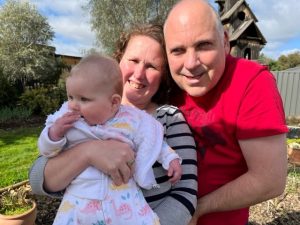The first 1,000 days of life – between a woman’s pregnancy and her child’s second birthday – is a unique period of opportunity when the foundations for optimum development and health across the lifespan are established. This time is also a time of tremendous potential as well as being a time of potential risk of adversity and vulnerability.
Support the First 1,000 Days
Research in the areas of neuroscience, biology and early childhood development provide the evidence into how a child’s development is affected by the biological and physical environments they occupy during the first 1000 days and shapes future outcomes.
Starting from conception, the unborn baby is actively responding to changes in the environment, using cues provided by the mother’s physical and mental state to ‘predict’ the kind of world they will be born into and altering their bodily structures accordingly. This is the powerful capacity for an unborn baby adapting to adverse experiences helping in the short term, but with negative implications in the long term. This puts into stark focus the importance of prenatal care for a mother including her nutritional and mental wellbeing, and the nutritional and environmental effects on the unborn and newborn baby for decades.
“The first thousand days is a period of maximum developmental plasticity, that means it’s the period during which as an organism we are most susceptible to change by environmental experiences, and those changes can have lifelong consequences.” (Dr Tim Moore, senior research fellow at Murdoch Children’s Research Institute)
The foundations for a child’s lifelong health and wellbeing are being built during this critical time of development. The first 1000 days highlights the importance of the nourishment and care for both mother and child and the profound impact on a child’s ability to grow, learn and thrive.
The first 1,000 days also gives rise to the development of attachment styles and the importance of secure attachment as a base from which a baby can thrive. Attachment styles are critical in the first 1,000 days with emphasis to the need for consistently responsive and nurturing relationships between a child and their parent.

A secure attachment builds the foundation for the development of future relationships throughout a child’s life, while providing a secure foundation for a child’s social and emotional development and learning.
Parenting style in the first 1,000 days is central to establishing the child’s attachment style shaping a child’s health and wellbeing outcomes in later life.
Parenting style relates to the emotional context a mother creates to communicate with her child featuring the importance of comfort with closeness and interdependence, confidence in support seeking, and other positive ways of managing stress; responding to her baby’s distress in a consistent, caring, and timely manner including picking up and comforting her baby.
Healthy development in the early years provides the building blocks for a child’s social and emotional wellbeing, educational achievement, economic productivity, responsible citizenship, lifelong health, strong communities, and successful parenting of the next generation.
If you would like to support the First 1000 Days of a child’s life : Donate

